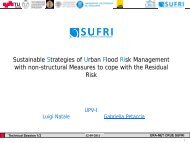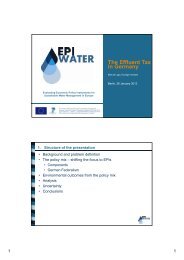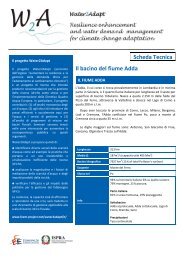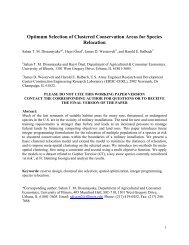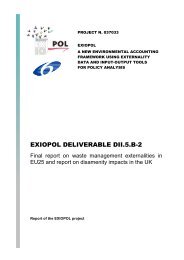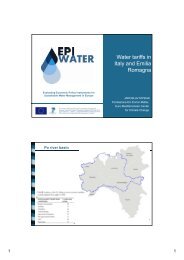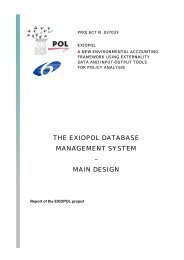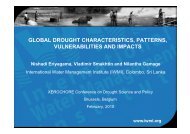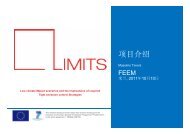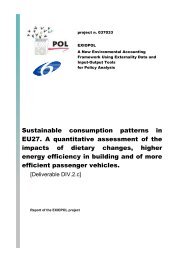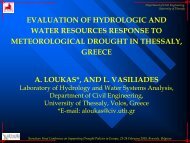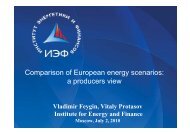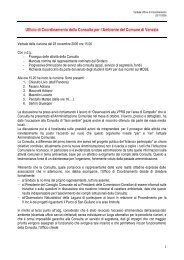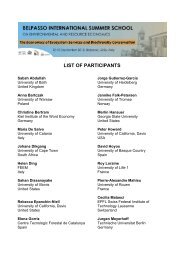Gulf and European Energy Supply Security - Feem-project.net
Gulf and European Energy Supply Security - Feem-project.net
Gulf and European Energy Supply Security - Feem-project.net
Create successful ePaper yourself
Turn your PDF publications into a flip-book with our unique Google optimized e-Paper software.
“Smart” energy policies must combine these three<br />
dimensions without neglecting the international<br />
relations context.<br />
<strong>European</strong> climate policies bring a significant<br />
double dividend in terms of reduced vulnerability<br />
to energy shocks, even in a non-cooperative<br />
framework. But energy scenarios opening the path<br />
to low carbon energy systems require an improved<br />
framework <strong>and</strong> incentives for electricity (including<br />
renewable) investment, a high degree of integration<br />
of the <strong>European</strong> electricity systems, a favorable<br />
institutional <strong>and</strong> regulatory framework for Carbon<br />
Capture Transport <strong>and</strong> Storage (CCTS), <strong>and</strong> an<br />
objective stance towards nuclear development. In<br />
addition to supply policies, dem<strong>and</strong> policies too<br />
must be strongly pursued.<br />
Since none of the requisites above are selfevident,<br />
<strong>and</strong> should low-carbon technologies fail to<br />
be available in time, the whole transition path to a<br />
low carbon economy would be at risk. Governments<br />
might thus be required to step in <strong>and</strong> provide<br />
adequate support. The most efficient way for the EU<br />
to develop cost-effective low carbon energy use is<br />
to have a generalized <strong>and</strong> viable EU-wide emission<br />
trading system capable of delivering st<strong>and</strong>ardized<br />
carbon prices or an effective EU-wide carbon tax.<br />
SECURE Project: Draft Policy Recommendations<br />
This is an important example of an area where<br />
energy security of supply <strong>and</strong> market development<br />
converge.<br />
Another area where the energy security of supply<br />
<strong>and</strong> the competitiveness dimensions converge is<br />
the internal market’s development. Integration of<br />
markets by developing regulatory policies, which<br />
enhance interconnections in gas <strong>and</strong> electricity<br />
infrastructure <strong>and</strong> thus foster competition, would<br />
be a big step in the right direction for <strong>European</strong><br />
security of supply.<br />
The unsatisfactory functioning of the<br />
international oil markets <strong>and</strong> the resulting<br />
uncertainty <strong>and</strong> volatility in oil prices is seen as the<br />
main security threat for future oil supplies because<br />
it hinders investment. Measures to reduce this<br />
artificially increasing volatility should be envisaged.<br />
Climate policies strongly influence the menu of<br />
policy solutions to energy security problems <strong>and</strong><br />
illustrate the type of uncertainties that the EU <strong>and</strong> its<br />
energy suppliers will have to face in the next decades.<br />
Efforts are thus needed to combine institutional<br />
solutions with a dialogue with EU’s partners on a<br />
medium-term programming of investments in the<br />
energy sector, in a balanced perspective of mutual<br />
underst<strong>and</strong>ing.<br />
12



